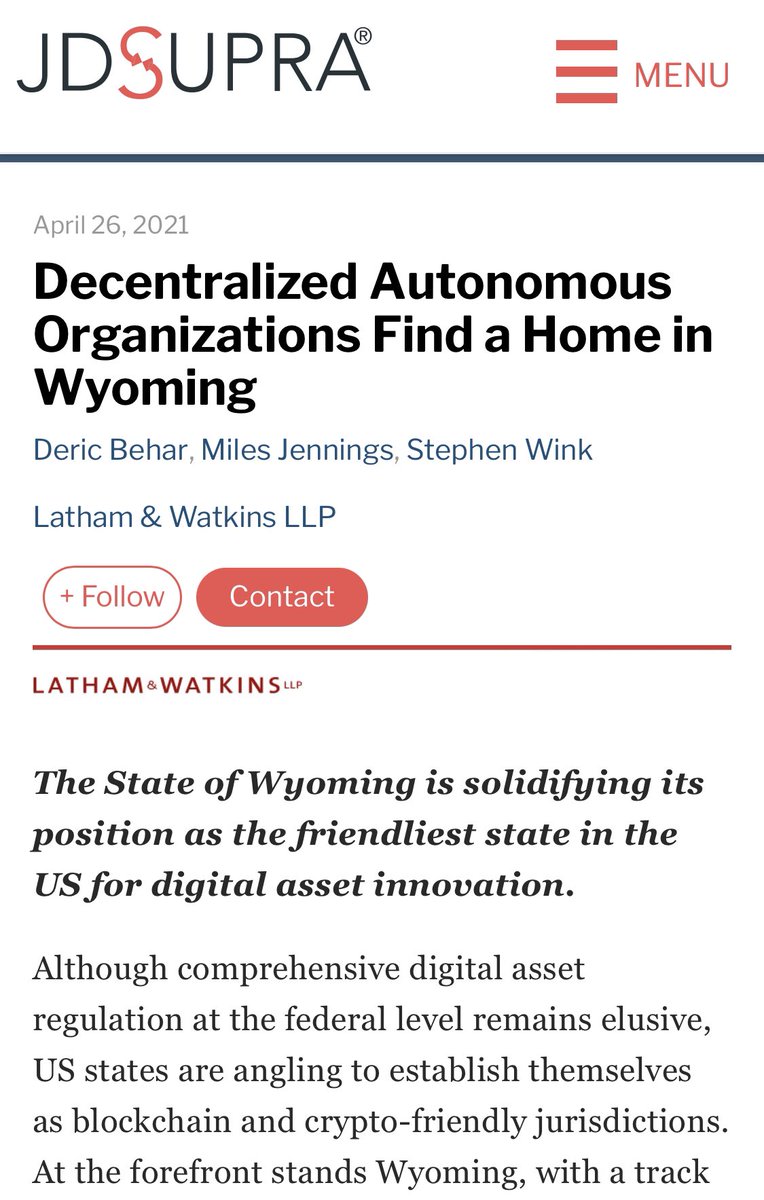
The new listing decision is making a cryptocurrency your government’s legal tender.
Cryptonetworks are attaining the scale (millions of holders) & resources (billions of dollars) to start conducting foreign policy.
Like digital proto-states, negotiating with nation states.
Cryptonetworks are attaining the scale (millions of holders) & resources (billions of dollars) to start conducting foreign policy.
Like digital proto-states, negotiating with nation states.
There are advantages for both decentralized and semi-centralized networks in this process.
A decentralized network can just be adopted. Any country can just stockpile BTC.
But a semi-centralized network, or a DAO, can offer billions in listing fees to incent national adoption.
A decentralized network can just be adopted. Any country can just stockpile BTC.
But a semi-centralized network, or a DAO, can offer billions in listing fees to incent national adoption.
Companies like Tesla, Amazon, and Google have negotiated with governments for some time. There are carrots & sticks on both sides. And often there is a binding promise of investment, made by a (centralized) CEO.
Cryptonetworks can now do similar things with on-chain commitments.
Cryptonetworks can now do similar things with on-chain commitments.
The process of accepting a volatile-but-appreciating asset as legal tender is a bit like a law firm deciding to take some amount of compensation in equity rather than cash.
It’s an in-kind investment in the asset. Which means the country needs a strong thesis on the asset.
It’s an in-kind investment in the asset. Which means the country needs a strong thesis on the asset.
In one scenario BTC is adopted first as legal tender by several countries, similar to BTC being listed first on every crypto exchange.
The next question is which other assets are listed, if any. It’s like diplomatic recognition. Expect large DAOs to be raised just for this.
The next question is which other assets are listed, if any. It’s like diplomatic recognition. Expect large DAOs to be raised just for this.
Latin America is a good candidate for mass adoption of BTC because of their history of currency crises. They understand the problem it solves.
Other places, financial centers like Switzerland and Dubai, may gravitate towards defi and ETH. It fits their pre-existing culture.
Other places, financial centers like Switzerland and Dubai, may gravitate towards defi and ETH. It fits their pre-existing culture.
https://twitter.com/balajis/status/1342147089526996992
Hundreds of millions of people will own many different kinds of digital assets, including cryptocurrencies, foreign digital currencies, and the digital currency of their own state.
We are entering an age of global monetary competition. balajis.com/how-india-lega…
We are entering an age of global monetary competition. balajis.com/how-india-lega…
• • •
Missing some Tweet in this thread? You can try to
force a refresh









